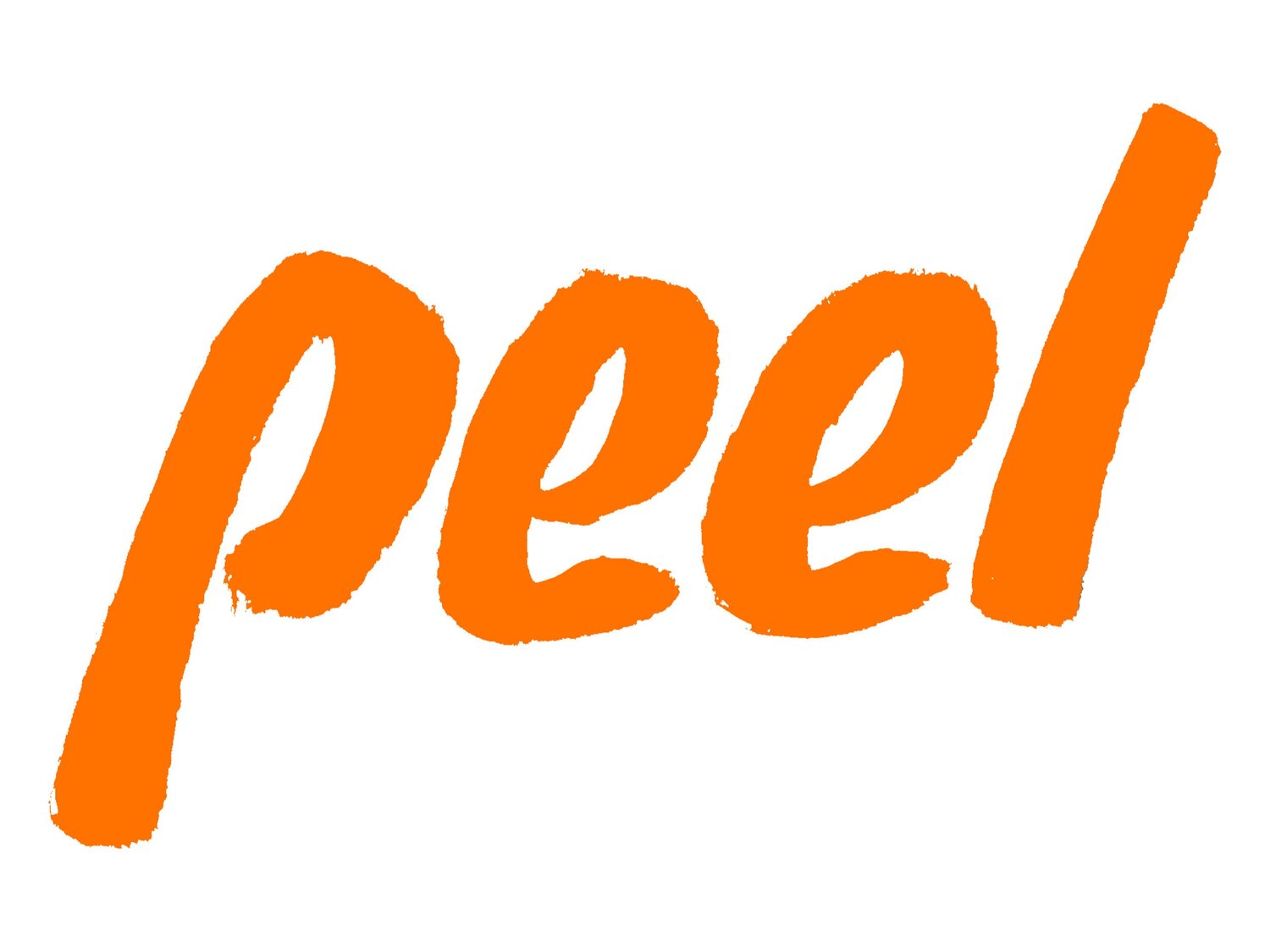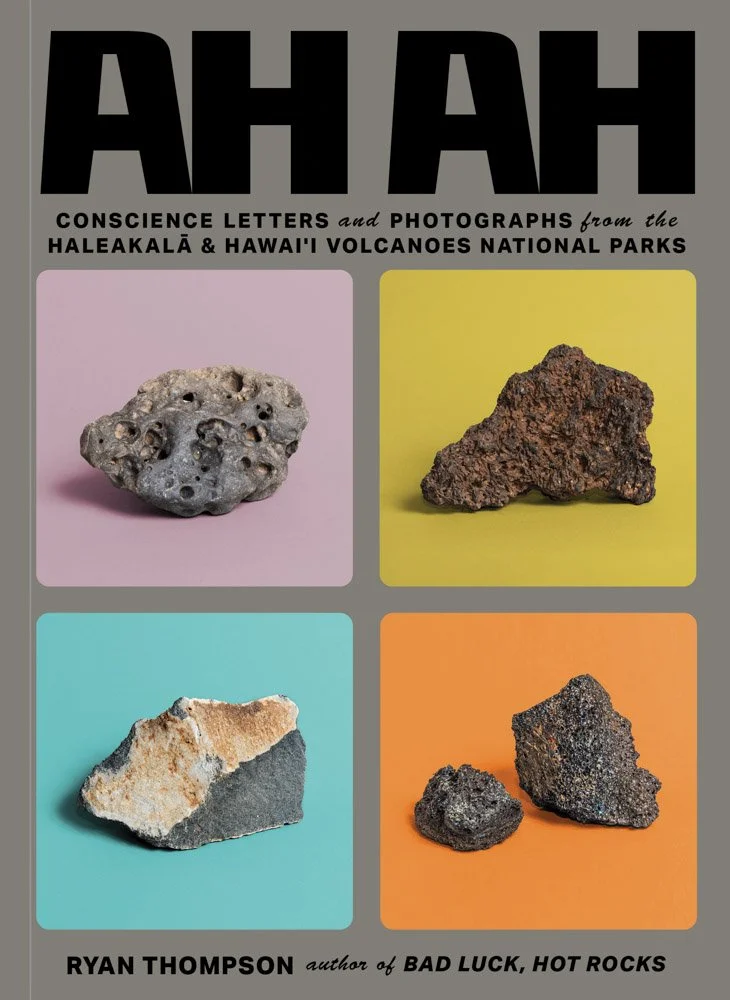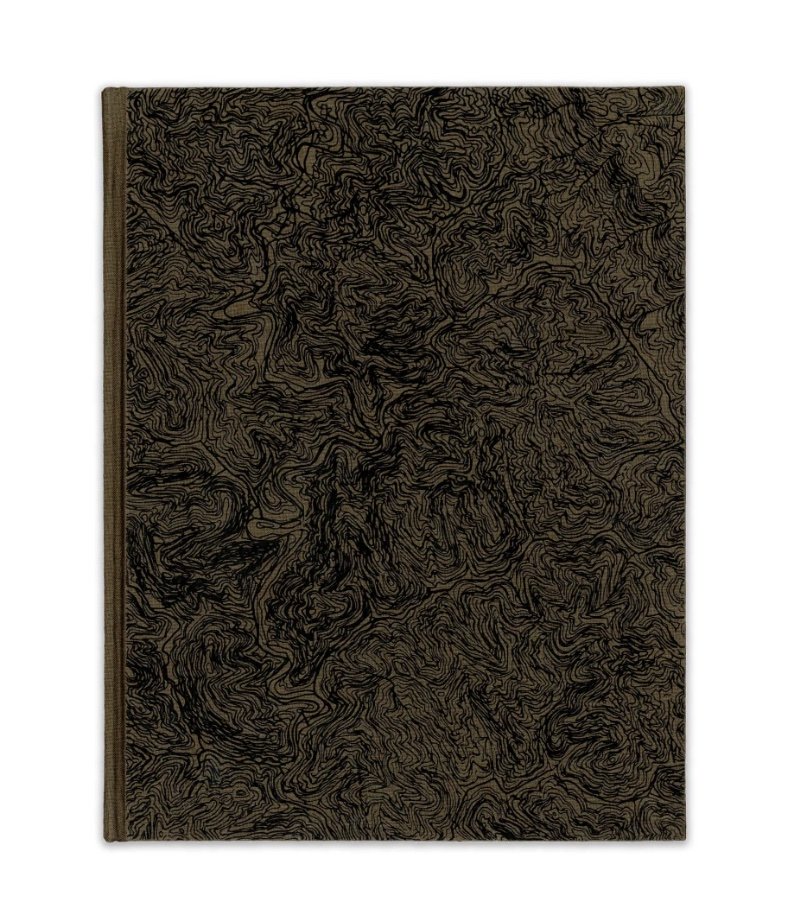Ah Ah: Conscience Letters and Photographs from the Haleakala & Hawai'i Volcanoes National Parks
The sequel to Bad Luck, Hot Rocks includes more rueful letters from repentant tourists, this time on stealing lava rocks from Hawai‘i
Following a trail of regret from the Petrified Forest (the subject of his classic Bad Luck, Hot Rocks) to the islands of Maui and Hawai‘i, artist and educator Ryan Thompson considers the implications of another trove of handwritten apologies, this time from the archives of the Haleakala and Hawai‘i Volcanoes National Parks. Written to accompany chunks of volcanic rock and other objects that tourists have pilfered from the Islands and subsequently returned (because of bad luck or bad conscience), the notes and letters express not only a need for forgiveness but also an awareness of the writers’ relationship to the Hawaiian landscape, and perhaps also to earth itself—a taking-and-returning phenomenon that (as noted in his earlier book) is its own form of absolution and self-help. Ah Ah weaves together Thompson’s own black-and-white travelog with vibrantly colored “portraits” of the returned specimens and facsimiles of selected letters into an endearing reflection on humanity’s troubling (but hopeful) entanglement with geology, colonialism and tourism in the Anthropocene.
Ryan Thompson lives and works in Chicago, where he is an artist and associate professor of art and design at Trinity Christian College. His ongoing Department of Natural History projects engage a range of complex and peculiar relationships between humans and the natural world. He is the coauthor of the bestselling photobook Bad Luck, Hot Rocks.
The sequel to Bad Luck, Hot Rocks includes more rueful letters from repentant tourists, this time on stealing lava rocks from Hawai‘i
Following a trail of regret from the Petrified Forest (the subject of his classic Bad Luck, Hot Rocks) to the islands of Maui and Hawai‘i, artist and educator Ryan Thompson considers the implications of another trove of handwritten apologies, this time from the archives of the Haleakala and Hawai‘i Volcanoes National Parks. Written to accompany chunks of volcanic rock and other objects that tourists have pilfered from the Islands and subsequently returned (because of bad luck or bad conscience), the notes and letters express not only a need for forgiveness but also an awareness of the writers’ relationship to the Hawaiian landscape, and perhaps also to earth itself—a taking-and-returning phenomenon that (as noted in his earlier book) is its own form of absolution and self-help. Ah Ah weaves together Thompson’s own black-and-white travelog with vibrantly colored “portraits” of the returned specimens and facsimiles of selected letters into an endearing reflection on humanity’s troubling (but hopeful) entanglement with geology, colonialism and tourism in the Anthropocene.
Ryan Thompson lives and works in Chicago, where he is an artist and associate professor of art and design at Trinity Christian College. His ongoing Department of Natural History projects engage a range of complex and peculiar relationships between humans and the natural world. He is the coauthor of the bestselling photobook Bad Luck, Hot Rocks.
The sequel to Bad Luck, Hot Rocks includes more rueful letters from repentant tourists, this time on stealing lava rocks from Hawai‘i
Following a trail of regret from the Petrified Forest (the subject of his classic Bad Luck, Hot Rocks) to the islands of Maui and Hawai‘i, artist and educator Ryan Thompson considers the implications of another trove of handwritten apologies, this time from the archives of the Haleakala and Hawai‘i Volcanoes National Parks. Written to accompany chunks of volcanic rock and other objects that tourists have pilfered from the Islands and subsequently returned (because of bad luck or bad conscience), the notes and letters express not only a need for forgiveness but also an awareness of the writers’ relationship to the Hawaiian landscape, and perhaps also to earth itself—a taking-and-returning phenomenon that (as noted in his earlier book) is its own form of absolution and self-help. Ah Ah weaves together Thompson’s own black-and-white travelog with vibrantly colored “portraits” of the returned specimens and facsimiles of selected letters into an endearing reflection on humanity’s troubling (but hopeful) entanglement with geology, colonialism and tourism in the Anthropocene.
Ryan Thompson lives and works in Chicago, where he is an artist and associate professor of art and design at Trinity Christian College. His ongoing Department of Natural History projects engage a range of complex and peculiar relationships between humans and the natural world. He is the coauthor of the bestselling photobook Bad Luck, Hot Rocks.












